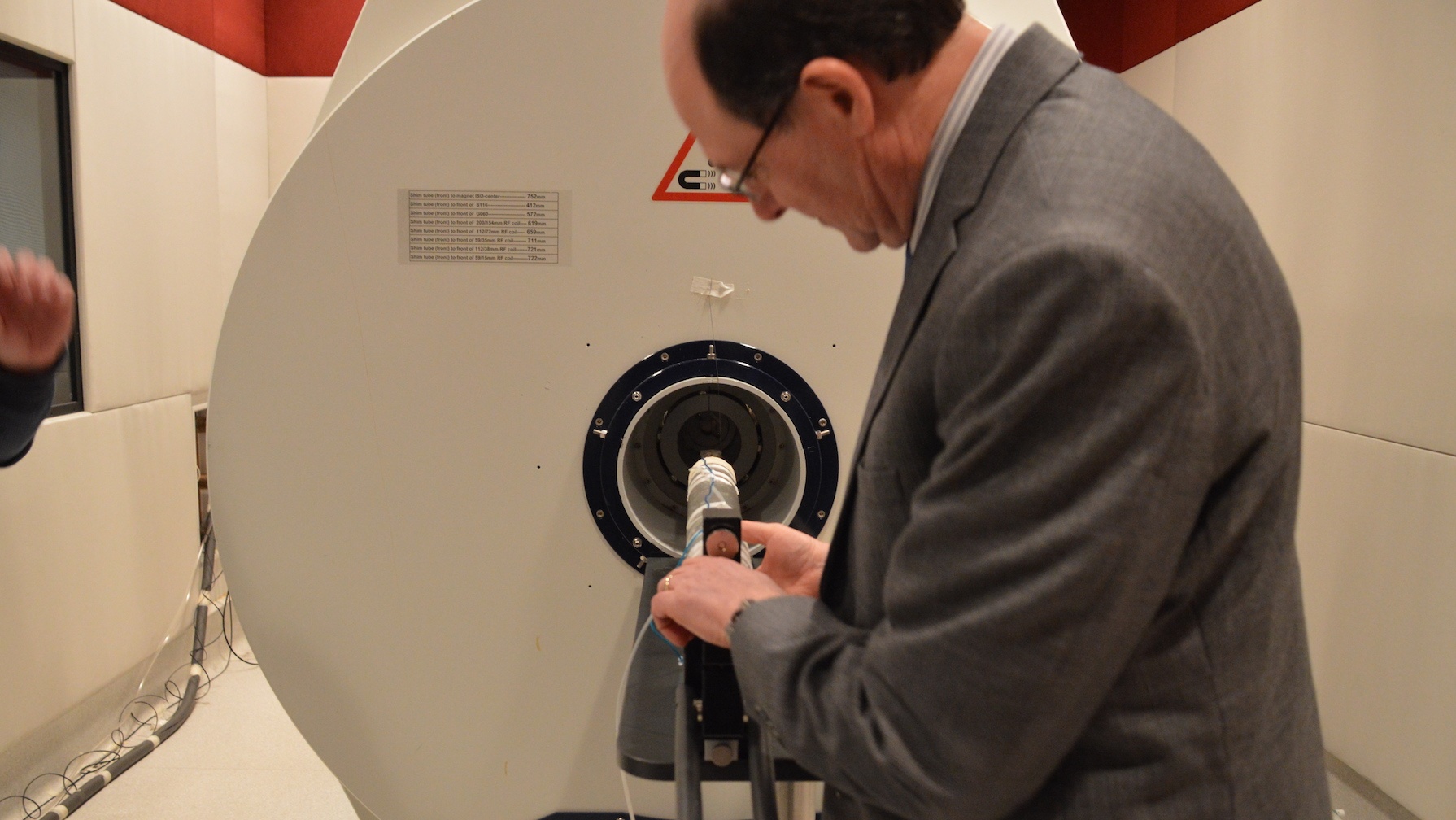Glioblastoma is an aggressive form of brain cancer with no cure. Even with surgery and chemotherapy, patients typically live only 12-18 months after diagnosis.
But a new discovery from OMRF scientist Rheal Towner, Ph.D., offers new hope in fighting this deadly cancer, which claimed the lives of Sens. John McCain and Ted Kennedy.
In pre-clinical experiments at OMRF, Towner discovered that a protein called ELTD1 is present in the most aggressive glioblastoma tumors. Towner then tested how the tumors would react to an antibody known to counteract the effects of ELTD1.
He found that the compound slowed the process of angiogenesis, the growth of new blood vessels, which is key to tumors’ ability to spread and kill.
“This drug seems just as promising, if not better than, what is currently considered the standard of care,” said Towner. “Few therapies exist for treating glioblastoma, but this could provide a step in the right direction.”
If proven effective in further trials, said Towner, “This could provide overall treatment with fewer side effects and better results than we see in current drugs.”
The new findings were published in the journal NeuroOncology.
Towner will continue to look for ways to use the new treatment in combination with other drugs to boost their effectiveness and better target tumors.
“One problem with drug treatments for tumors is that it’s hard to get the drug to the tumor site,” he said. “If we can regulate that process with targeting ELTD1, we might be able to use it to deliver other drugs directly to the tumor and, hopefully, eliminate it.”
If researchers succeed with this tumor-targeting method, Towner said they will begin testing it on other tumors associated with breast, pancreatic or other cancers.
Funding for this research was provided by National Institute of General Medical Sciences, grant number 5P20GM103636-02, and Institutional Development Award (IDeA) from the NIGMS, grant number 5P20GM103639. The NIGMS is part of the National Institutes of Health.



